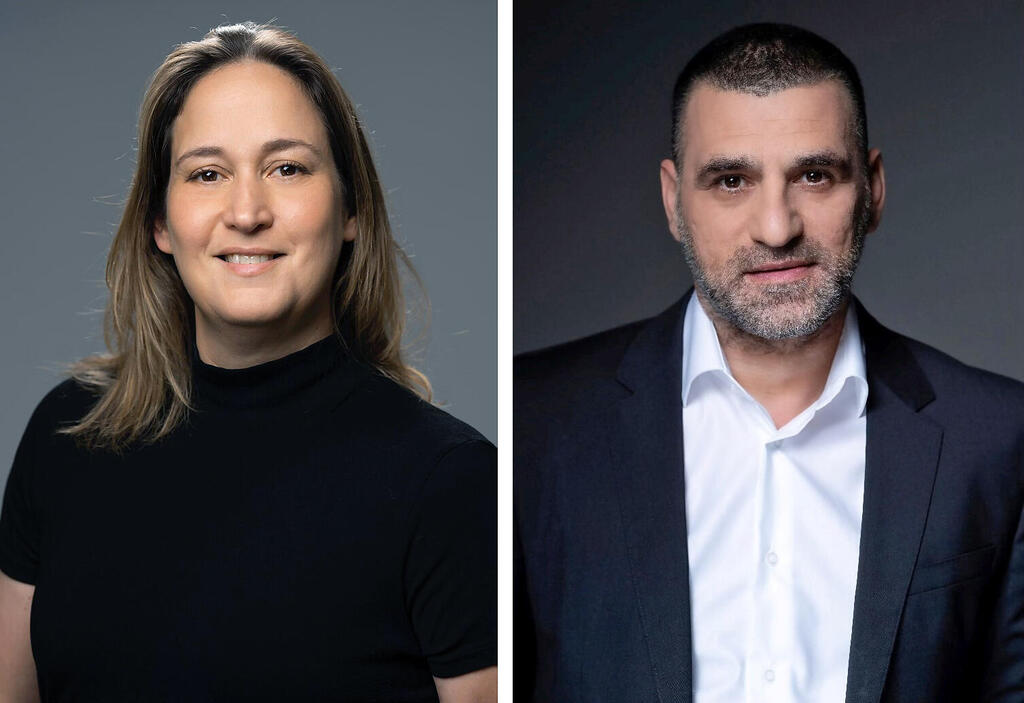
Tnuva expanding its activities in the alternative meat and fish sectors
Following its success with alternative milk products, the company has launched an R&D center for alternative protein products
Based on the positive results of its activities in the alternative milk sector, the Tnuva Group is deepening its investment in the alternative beef, chicken, fish and egg sectors. The group is establishing an R&D center focused on alternative protein, with an initial investment of NIS 5 million (approximately $1.45 million), Calcalist has learned.
The center, which is currently being set up in Rehovot is part of the company’s strategy to retain its position as the domestic market leader by updating its product lines to reflect consumers’ changing tastes, as well as creating a foundation for continuing its sale of knowhow in international markets.
1 View gallery


Pnina Sverdlov, Tnuva’s Chief R&D Officer (left) and Tnuva Chairman Haim Gavrieli.
(Photo: Rami Zerenger)
The new center will enable the company to use raw materials developed by various alternative protein startups to develop consumer end products. The move will facilitate the rapid development of innovative products, says Pnina Sverdlov, Tnuva’s Chief R&D Officer, who will also head the new R&D center.
“Given the development of all types of alternatives, we realized we have to set up a new ‘playing field’ with food technologists whose expertise lies in the development of products made from innovative raw materials. This facility will allow us to set up a pilot that simulates all the processes that occur in our factories, including production lines. In this way, we can manufacture the full range of products in small quantities and carry out many experiments with raw materials that have not yet been introduced into our factories,” she says.
While the company’s R&D center for milk products carries out pilots using quantities that reach tens of kilograms, the tests involving the innovative and expensive alternative protein raw materials will involve smaller quantities measured in tens and hundreds of grams. This requires specialized equipment, says Sverdlov, adding that this is the first time the company has dealt with meat, fish and egg alternatives.
Dialogue with startups
The decision to establish a designated R&D facility for alternative proteins also arose from the need to bridge the gap between the corporation and the young startups. “We realize that we can build our next generation of products through our partnership with startups. There will be something in these innovative ingredients that will be a game-changer, so we’re investing a great deal of money and management resources in this project,” Sverdlov says.
“But we also realize that our working methods as a large-scale food company don’t fit in with the startup culture and that when these young companies encounter big corporations, it can be very complex for both parties. That’s why we had to create a situation in which we also speak their language a bit, while at the same time enabling them to understand the industry’s language, what the industry is looking for in terms of processes, regulation, kosher dietary requirements, costs and more.”
Sverdlov believes the R&D center, which will be completed in three months, will lead very quickly to the development of new products, some of which are already in progress. “During the past two years, we’ve been working at our existing R&D facility with 15-20 startups with whom we’ve already reached various stages of development,” she notes.
While the development process has already advanced, the company is expected to face regulatory challenges. “I think we’ll achieve a prototype fairly quickly, but I’m concerned that Israel’s regulatory bodies won’t be able to keep up with the pace and we’ll end up being ready before suitable regulation has been formulated. It will be challenging to close the gap in regulation, because new categories must be defined and the regulatory aspect of food safety has to be correlated with the Ministry of Health. The Israel Innovation Authority is working to move this forward,” Sverdlov says.
The establishment of the Rehovot center follows several investments by Tnuva in the field of food innovation, totaling tens of millions of shekels. In February, the company launched its investment arm, Tnuva NEXT, which will invest about NIS 30 million a year in food-related startups. Some of this will go toward follow-up investments in the FoodTech incubator led by Tnuva and its partners in the northern city of Kiryat Shmona.
In addition, Tnuva is a partner in a cultured meat consortium that received NIS 60 million two months ago from the Israel Innovation Authority. The consortium consists of food companies and four research laboratories working toward making the development of cultured meat accessible, with the goal of becoming a significant player in the meat market.
Approaching an IPO
The focus on alternative proteins is already bearing fruit. Last September, Tnuva signed an agreement with the Swiss Migros Group to sell its know-how for the production of soy-based milk alternatives, in a deal estimated to be worth tens of million of euros. It can be expected that the expansion of Tnuva’s know-how regarding alternative protein for beef, chicken, fish and eggs will enable the company, which is approaching its IPO, to increase its income sources.
Tnuva Chairman Haim Gavrieli, who is heading the company’s delegation to the Future FoodTech conference currently taking place in New York, dedicated to alternative proteins, says: “The establishment of the R&D center for alternative protein is part of the Group’s strategy to lead this field by making these products accessible to the public in Israel and throughout the world.
“Tnuva already became a pioneer in alternative protein 18 years ago and over the years, the company has invested hundreds of millions of shekels in the development of this realm. We get numerous requests from foodtech startups and all investments are evaluated in accordance with the Group’s strategy and vision, including investments abroad,” he says.













